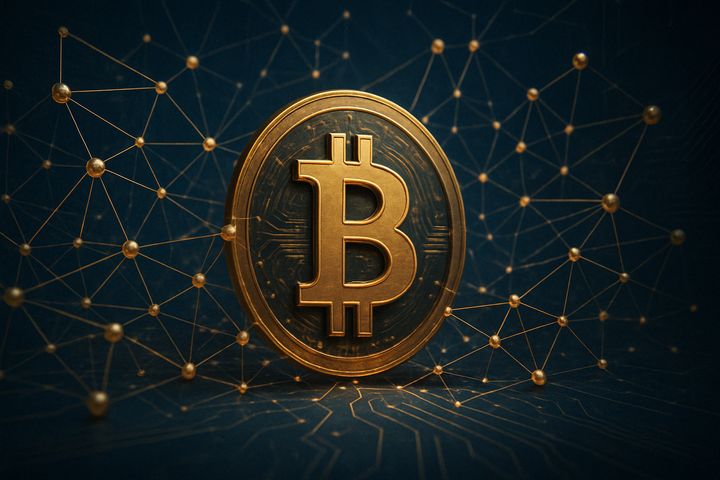The U.S. Strategic Bitcoin Reserve: Catalyzing a Global Financial Shift
In the November 22, 2024, episode of the Robin Seyr podcast, Neil Jacobs explores the transformative potential of Bitcoin adoption at the national and individual levels, focusing on the U.S.'s proposed acquisition of a strategic Bitcoin reserve.

- My 'briefing notes' summarize the content of podcast episodes; they do not reflect my own views.
- They contain (1) a summary of podcast content, (2) potential information gaps, and (3) some speculative views on wider implications.
- Pay attention to broadcast dates (I often summarize older episodes)
- Some episodes I summarize may be sponsored: don't trust, verify, if the information you are looking for is to be used for decision-making.
Summary
The November 22, 2024, episode of the Robin Seyr podcast explores the U.S.'s potential acquisition of a strategic Bitcoin reserve and its profound implications for global monetary systems. Neil Jacobs argues this move could lead to a geopolitical race for Bitcoin, while also addressing Bitcoin’s evolving legitimacy, grassroots educational efforts, and its role in financial sovereignty.
Take-Home Messages
- U.S. Leadership in Bitcoin Adoption: The United States is exploring a strategic Bitcoin reserve, which could redefine global monetary systems.
- Nation-State Competition: The race for Bitcoin among nation-states is accelerating, with significant economic and political implications.
- Institutional Impact: Bitcoin ETFs and institutional endorsements legitimize Bitcoin as a mainstream asset, driving further adoption.
- Grassroots Role: Scaling grassroots Bitcoin education is crucial to maintaining decentralization amidst institutional influence.
- Inflation and Sovereignty: Bitcoin offers individuals a hedge against inflation and a path to financial sovereignty.
Overview
The November 22, 2024 episode of the Robin Seyr podcast features Neil Jacobs delving into the U.S.'s proposed strategic Bitcoin reserve of one million BTC, positioning it as a potential turning point in global financial systems. Jacobs suggests this initiative would compel other nation-states to accelerate their Bitcoin acquisition strategies. The geopolitical implications are significant, as countries compete for a limited supply of 21 million Bitcoin.
Jacobs highlights Bitcoin’s advantages over fiat currencies, particularly its ability to preserve purchasing power amid rising inflation. This is especially relevant as fiat devaluation becomes more apparent, even in developed nations. He emphasizes that Bitcoin’s fixed supply and decentralized nature make it uniquely positioned as an alternative monetary standard.
Grassroots Bitcoin communities play a vital role in spreading awareness and fostering adoption. However, scaling these efforts to meet growing interest presents a challenge. Jacobs underscores the importance of balancing institutional and grassroots contributions to preserve Bitcoin’s ethos.
The discussion also touches on the psychological and cultural shifts Bitcoin inspires, reframing it as money rather than a speculative asset. This perspective, Jacobs argues, is essential for driving meaningful societal and financial transformation.
Stakeholder Perspectives
- Policymakers: View Bitcoin as a tool for national economic strategy but face challenges in integrating it into existing frameworks.
- Institutional Investors: See Bitcoin ETFs as a gateway to adoption but are wary of regulatory risks and potential centralization.
- Grassroots Communities: Focused on preserving Bitcoin’s ethos while scaling educational outreach to counterbalance institutional narratives.
- Corporate Leaders: Grapple with integrating Bitcoin into treasury strategies while maintaining operational flexibility.
- Individual Investors: Recognize Bitcoin’s potential to protect against inflation and safeguard financial sovereignty.
Implications
The U.S.'s proposed strategic Bitcoin reserve could prompt a global race for Bitcoin, fundamentally altering international monetary policy. This shift would have important implications for global markets, potentially destabilizing fiat systems while boosting Bitcoin’s status as a reserve asset. Nations unprepared for this transition risk economic marginalization.
For individuals, Bitcoin adoption offers a hedge against inflation and a path to financial sovereignty. However, widespread adoption necessitates robust grassroots education efforts to ensure equitable access and understanding. Balancing these dynamics will be critical to realizing Bitcoin’s potential without undermining its decentralized principles.
Future Outlook
The U.S.’s exploration of a strategic Bitcoin reserve represents a pivotal moment that could redefine global financial priorities. As other nations accelerate their Bitcoin acquisition strategies, market volatility is likely to increase. Policymakers and institutions must act swiftly to adapt to this rapidly evolving landscape.
Grassroots efforts must scale to ensure broader understanding and equitable adoption. Simultaneously, institutional involvement should be balanced with safeguards to preserve Bitcoin’s decentralization. Navigating these complexities will determine whether Bitcoin fulfills its promise as a decentralized global monetary standard.
Information Gaps
- How would the U.S. acquiring a strategic Bitcoin reserve impact global monetary systems and geopolitical dynamics? This question explores the global ripple effects of U.S. Bitcoin adoption, crucial for understanding shifts in monetary power and market behavior.
- What safeguards can be implemented to prevent centralization risks as large financial entities adopt Bitcoin? This addresses the risks institutional adoption poses to Bitcoin’s decentralization and identifies strategies to mitigate them.
- How do varying rates of inflation impact Bitcoin adoption in developed versus developing nations? Understanding these dynamics can help tailor adoption strategies to different economic contexts.
- How can grassroots Bitcoin communities scale their educational efforts to reach a wider audience effectively? This research is vital for maintaining Bitcoin’s ethos and ensuring equitable access as adoption grows.
- What role does Bitcoin play in shaping corporate financial resilience during economic downturns? This examines Bitcoin’s utility for businesses, offering insights into its potential to mitigate economic risks.
Broader Implications for Bitcoin
Industry Transformations
Bitcoin’s use as a corporate treasury asset could drive more efficient capital allocation, particularly in preserving value during economic downturns. Businesses may increasingly face the decision to adopt Bitcoin for resilience, potentially reshaping financial practices across industries. This trend could also create new markets for Bitcoin-related services, from custody solutions to infrastructure development.
Societal Shifts
Bitcoin’s fixed supply and decentralized nature may encourage a shift toward a merit-based financial system, reducing inefficiencies tied to centralized fiat currencies. Broader adoption could foster global economic inclusivity by leveling the playing field for underserved populations. However, achieving this vision depends on maintaining Bitcoin’s decentralization ethos amidst increasing institutional involvement.
Environmental Narratives
The shift away from outdated criticisms of Bitcoin’s environmental impact reflects broader acceptance of its role in sustainable innovation. Bitcoin mining could increasingly integrate renewable energy solutions, presenting opportunities for energy optimization globally. These developments could align Bitcoin adoption with climate-focused policy agendas, easing public and political concerns.



Comments ()